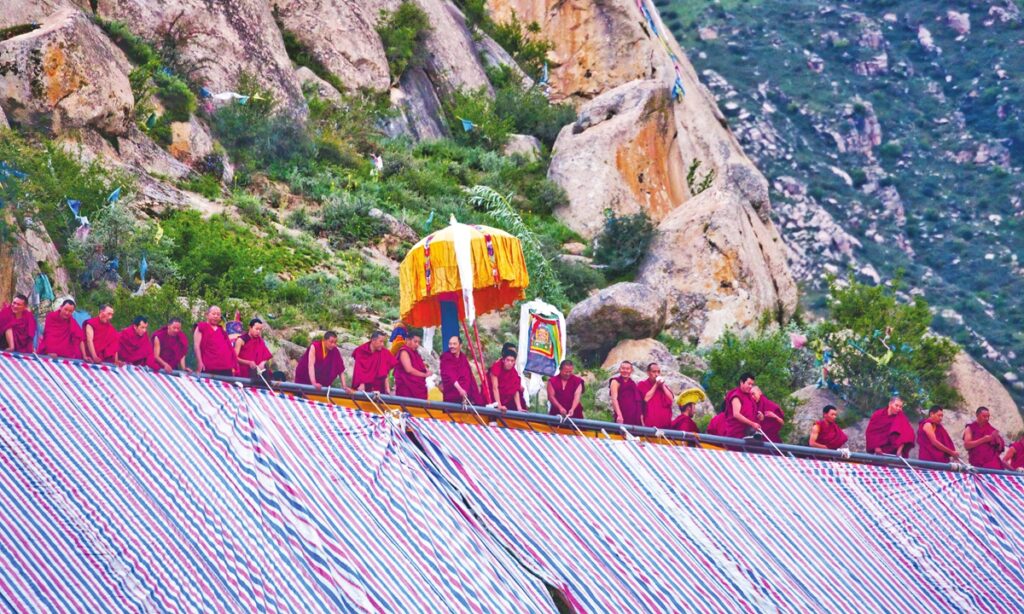The Lhasa Shoton Festival kicked off in Lhasa, the Xizang Autonomous Region, on Wednesday. During the seven-day festival, some new programs in arts, sports and environmental protection will be highlighted.
The Shoton Festival originated from the mid-11th century, and was celebrated every year from the end of the sixth month to the beginning of the seventh month of the traditional Tibetan calendar. Legend goes that in early summer, Tibetan Buddhism monks were restricted to monasteries, usually in the mountains, to do meditation for fear that they might “kill life” by accidentally stepping on insects or plants. It was not until the end of the sixth month that monks were allowed to go out. In order to reward them, Buddhist believers would prepare yogurt, hold picnics in suburbs and perform Tibetan Opera for them. In 2006, it was officially added to China’s intangible cultural heritage list.
Literally speaking, sho means “yogurt,” and ton means “banquet.” The most important activities of the festival include displaying the giant painting of the Maitreya Buddha, enjoying Tibetan Opera and eating yogurt.
At the evening gala on Wednesday, Peking Opera and Kunqu Opera singers from Beijing and East China’s Jiangsu Province were invited to perform on the same stage with Tibetan Opera artists. Their performances were broadcast online and on new media platforms of the provinces and municipalities that have provided aid to Xizang.
“I think the inland operas and Tibetan Opera performed on the same stage will help artists learn from each other, and allow them to improve their performance skills and strive for excellence together,” Xiong Kunxin, a professor at Minzu University of China, told the Global Times.
“It will also contribute to the exchanges, interaction and integration between different ethnic groups of China as well as their living in harmony, working together with one heart and achieving harmonious development,” Xiong said.
Moreover, local Tibetan Opera troupes will also perform with troupes from Tibetan-inhabited areas in Northwest China’s Qinghai and Gansu, and Southwest China’s Sichuan and Yunnan provinces. In addition to traditional performances, modern arts such as hip-hop and pop songs will also be performed at the gala.
Besides the well-known giant Buddha painting displaying event at the Drepung Monastery, in 2023 another event of such kind was also held at the Sera Monastery, another main monastery of the Gelug Sect of Tibeban Buddhism, in Lhasa.
Traditionally, there are also activities including equestrian, yak racing and Tibetan chess competitions. In 2023, the equestrian show will be upgraded to a horse race, and the Lhasa International Marathon will also be held.
During the festival, local people usually go to Norbulingka, the former summer palace of the previous Dalai Lamas, to have picnics and enjoy Tibetan Opera while talking, singing and dancing among themselves.
In addition, a seminar on the ecological restoration and control of the Lhasa River will also be held with the participation of experts from across China.
The festival is scheduled to end on August 22.
(Global Times)




